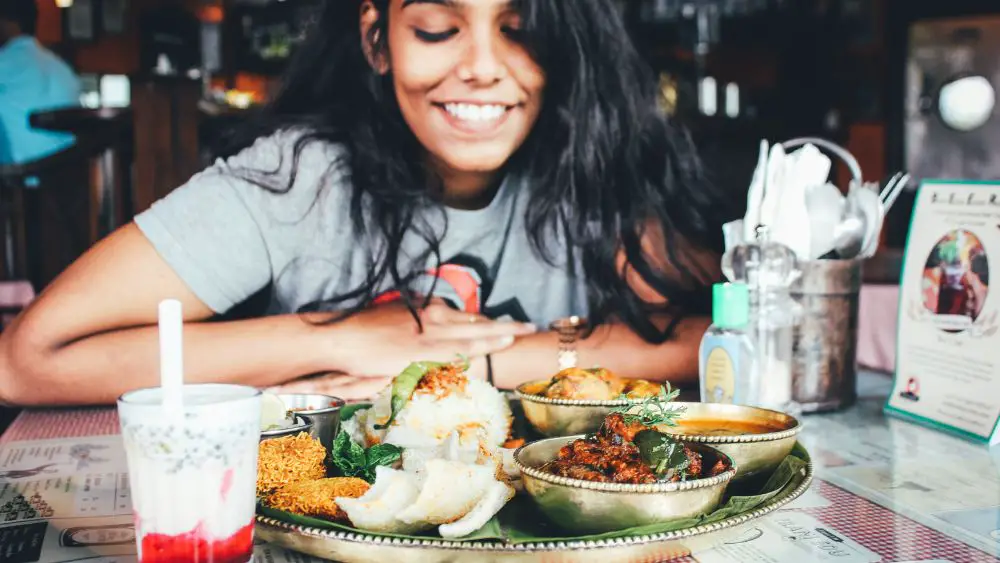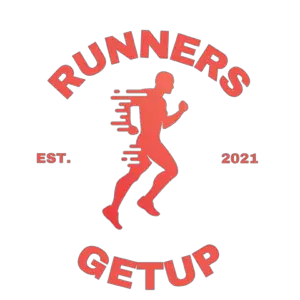This post contains affiliate links.

Healthy nutrition is a component of a good training regimen. Your weeks of running, resting, and exercising are nothing if the food you eat does not complement your needs. This is why having a healthy diet is a must-have for any marathoner. It could be the deciding factor whether you finish the track or not.
Your food intake in the week leading up to the marathon should be mainly composed of carbs. Aside from that, you also want some protein, healthy fat, vitamins, and minerals to support your energy needs. These will promote faster recovery and lessen exhaustion during the event.
Let us dive deep into the specifics.
A Week Before the Marathon
Eating normally on days 7 to 5 before the marathon is a good idea. This serves as the buffer period for your body before you increase carbohydrate intake.
Also, this is when you are most likely easing up on your daily running mileage. Your body will normally respond by storing up carbs to compensate. As such, a healthy amount of strawberries, almonds, soy milk, and beans can go a long way.
4 or 3 days before the race, you should start upping your carbohydrate consumption. This process is called carbohydrate loading, and it is a common technique used by marathoners worldwide. The purpose is to store as much glycogen (also called muscle fuel) as you can in preparation for race day.
Experts recommend consuming 3.6 to 5.5 grams of carbs per pound of weight (or 8 to 12 grams per kg) This allows enough glycogen to be stored in the muscles leading up to the race.
Here are some foods that you might want to consider:
- Pastas (Spaghettis, carbonaras, or pestos)
- White Rice
- Quinola
- Potatoes
- Pancakes
- Bananas
Apart from being rich in carbs, they are also fairly easy to prepare or order. This gives you more time to focus on mental training and relaxing before the 26.2 miles of running.
24 Hours Before the Marathon
The full day before the marathon is the most crucial one. What you do on this day will directly affect your performance in tomorrow’s event.
A good rule to follow is never to shock your body. Thus, making sure that you continue carb loading is a must so that your body won’t undergo severe changes. This also ensures that you will be able to properly absorb the stored glycogen on race day.
Limit taking in high-fiber food as it might lead to an upset tummy as race day approaches. Also, this will lighten the load on your intestines to prevent unwanted poo breaks during the competition.
It might be tempting to keep your energy levels high the night before the event with a hearty meal. However, doing so will increase the risk of feeling too heavy. I recommend a lightweight meal composed of pasta during this time.
Always remember to eat early as a late meal will result in a heavy tummy when you wake up. If you become hungry, you can snack on additional nutrients such as a banana as it also has its benefits.
Here are other options:
- Sweet Potatoes
- One or two pizza slices
- Rice and chicken
- Pasta
- Bagel
You might have heard the term “pasta party” where marathon runners eat pasta together a day before a marathon. If so, you might want to check out why marathon runners eat pasta before the race in another article that I made.
3-4 Hours Before the Marathon
The meal 3-4 hours before your event will most likely be your breakfast or some pre-race snacks. Thus, the focus must be on enabling easy digestion as well as storage of glycogen reserves in your body. After all, some of the carbs you have eaten up during dinner are most likely used up during your sleep.
What to eat during breakfast depends on your tastes. However, incorporating a good amount of carbohydrates not less than 100 grams is a must. You can opt for coffee if you want to be combined with porridge, bagel, or even a sandwich. The key is to go healthy yet light.
Time your breakfast not less than 3 hours before the run. If you can, stick to a breakfast timing that is similar to how you trained. This gives a sense of familiarity with the activity and will result in better performance.
Apart from nutrition, hydration is also as important. Keep yourself fresh and replenished with a bottle of water.
During race preparation which is an hour before the race, you can munch on some bananas as it helps maintain your glycogen stock. Not only that, but bananas are also easy on the stomach.
If you want a headstart, then you can eat up to 25 grams of carbs 20 minutes before the race. This will give you an energy boost on the first 2 or 3 kilometers of running.
Here are some of the best pre-run snacks for a marathon:
- Fruits such as a banana
- Energy bar
- Bagel with peanut butter
- Pretzels
- Bread toast with some jam
- Sports drinks and juice
Eating carbs should carry on even when you’re already running. However, the type of carbs you’ll eat during the race will differ. I made an entire article on what to eat during a marathon race in a separate article. I highly recommend you check it out.
What to Avoid Before the Marathon
Now that you should know what food to consume, you should also be aware of what to stay away from. Here are some of them:
Fiber
Due to its nutritional value, athletes may be tricked into getting some fiber before a race. However, I do not suggest this since fiber-rich snacks are known to give abdominal pain, flatulence, and even diarrhea.
Insoluble fibers such as beans are notorious for fostering quicker digestion which may cause problems in the track. You do not want to frequently take bathroom breaks just because you munched on the wrong snack before the race.
Sweet Drinks
Sugar is known to be an energy booster. It provides a solid stream of glucose in the body, and it is quickly digested. However, you should think twice about consuming a can of soda before a race. At first, you might get an energy burst, but it will quickly fall off and result in tiredness.
It is better to stick to the hydration substance you are used to during training. Water or electrolyte drinks are better choices since they won’t affect your body that much.
Oily Food
A good old bucket of fries might sound great on the day before the run. After all, it is full of savory flavors that will motivate you to eat more. Despite the temptation, runners must steer clear of fried and oily foods since they bring more harm than benefits.
Oily foods are riddled with fats, and these are the macronutrients that digest the slowest. The result is a higher chance of bloating and stomach pain.
Milk
If there is one thing that you do not want to experience during the race, it is lactose intolerance. Steer clear of dairy products that might upset your stomach as they will truly affect your running performance. The fewer risks you take, the better the chances are towards an enjoyable run.
Spicy Snacks
Aside from having the chance to mess up your gut and cause heartburn, spicy snacks are also known to increase overall body temperature. In research conducted in 2015, capsaicin was found to have a direct impact on the increase of body heat. This results in excessive sweating, discomfort, and loss of energy.
If you want to eat something spicy, better to stock it up for after the race.
Why Carb-Loading is a Must
Carb-loading is known to give you an extra boost of energy and endurance in a marathon event. It also increases running performance since you are less tired and more active to run further.
With carb-loading, it is possible to double the amount of glycogen stored in your muscles in preparation for a marathon. This means more fuel and usable energy for the grueling 26.2 miles of running.
Research has shown that carb-loading decreases overall fatigue in muscle fibers and promotes intensity of muscle usage to up to 20%. This means that you are less tired when you carb-load than when you do not during a marathon.
In any case, carb-loading should be applied to any marathoner’s preparation as the benefits are too much to ignore.
Final Thoughts
A marathon can be a great challenge, but proper diet and nutrition in the week leading up to it can make it more bearable. Carb-loading is an important technique that you should apply so that you get the most out of your performance. Whatever food you may choose to intake, remember to eat in moderation and not overdo it. This will result in an enjoyable time on the track with good gut health and lesser fatigue.

